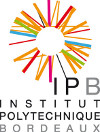 |
 |
|
Intitulé:
Genome evolution and unexpected bacterial content in isolates of the model fungal pathogen Magnaporthe
du groupe BioInformatique et Visualisation
|
| Date | 2015-02-05 11:00-12:00 |
| Titre | Genome evolution and unexpected bacterial content in isolates of the model fungal pathogen Magnaporthe |
| Résumé | We have analyzed and compared a dataset of ten closely related genomes of the Magnaporthe oryzae/grisea species complex, a model pathogen fungus infecting rice and other Poaceaes.
Nine new genomes were sequenced, assembled and compared to the reference public genome of the 7015 isolate. De novo structural annotation was carried out to predict genes and to annotate Transposable Elements (TEs) in these nine genomes. Four of them exhibited large supplementary genomic regions potentially issued from an unknown bacterial strain of the Burkholderia genus. We used a parametric method based on genomic signature to accurately quantify, characterize and filter these regions in all the affected genome scaffolds. Detection of potential horizontal transfers was also performed using dedicated genome signatures.
We then constructed gene families to determine the core and pan-genomes of the 10 M. oryzae/grisae isolates. Evolutionary history of the predicted ortholog families was investigated using a recent method named Bayesian Concordance Analysis. We built a reference genealogy of these 10 isolates and showed a bifurcating evolution outside the lineage of isolates pathogenic to rice, and reticulate evolution within this lineage. The low level of nucleotidic diversity within the “rice” lineage suggested its recent divergence. The reticulate evolution observed in this lineage was consistent with a weak signal of recombination, but might be mainly due to incomplete lineage sorting. We also showed that a small but non-negligible proportion of the 7015 genome has a non-rice origin. |
| Lieu | salle 178, LaBRI |
| Orateur | Hélène Chiapello |
| Url | INRA, Toulouse |
Aucun document lié à cet événement. RetourRetour à l'index
| |


